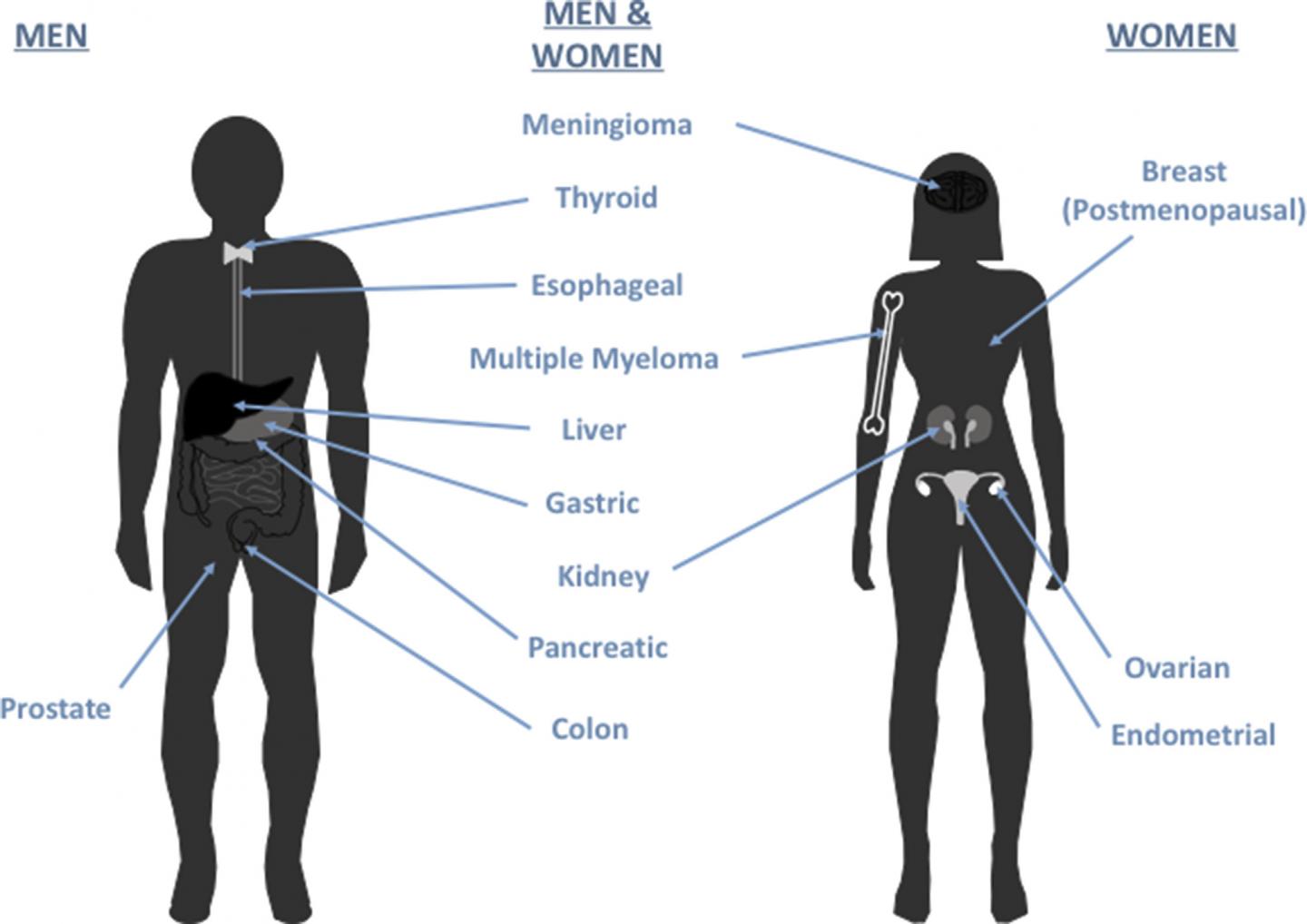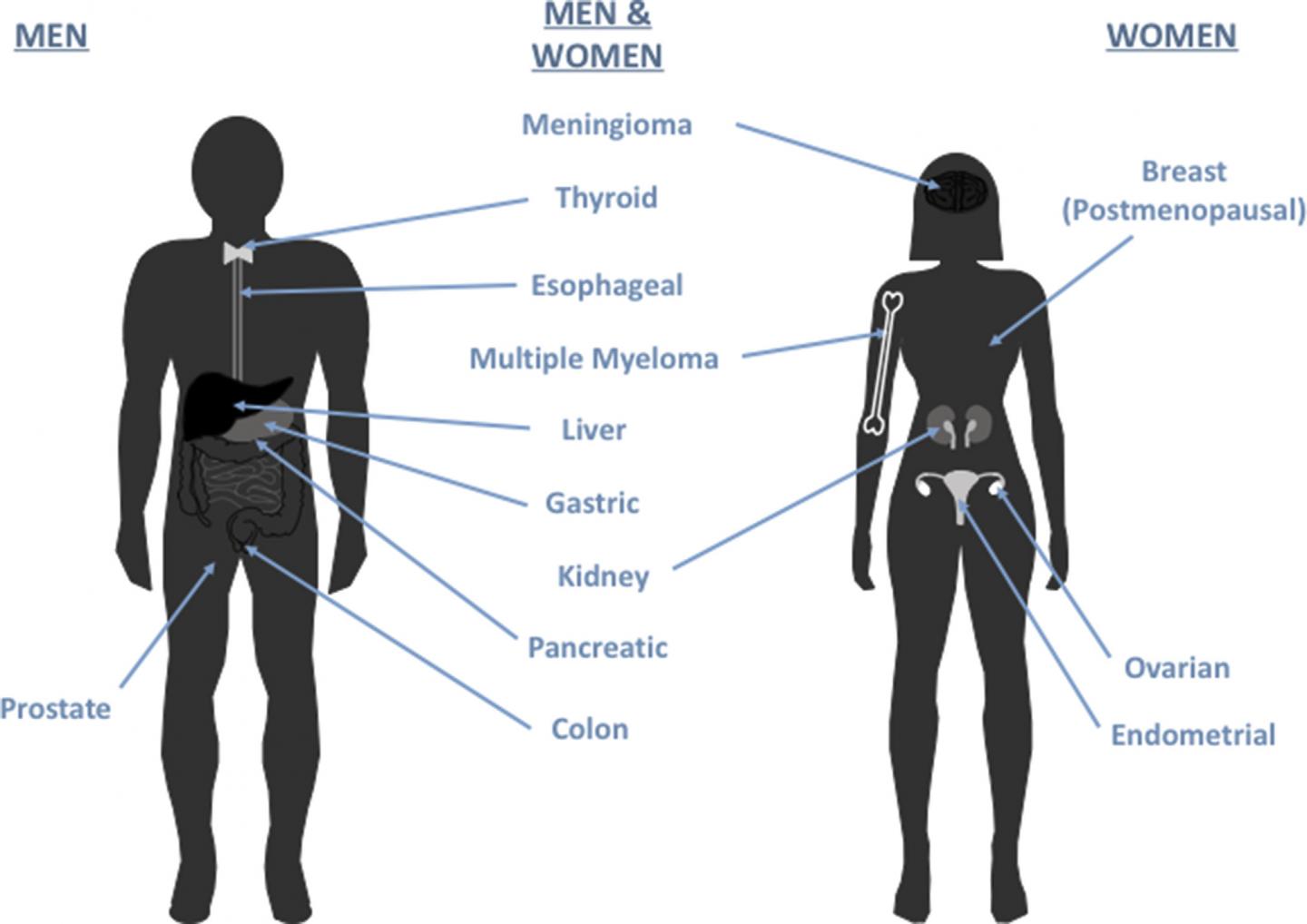
Credit: Journal of the Academy of Nutrition and Dietetics
Philadelphia, March 27, 2018 – About one third of cancer cases are estimated to be linked to dietary and other modifiable risk factors, especially for obesity-related cancers such as breast, colorectal, ovarian, endometrial, kidney, gallbladder, esophageal, and pancreatic cancers. In this special theme issue of the Journal of the Academy of Nutrition and Dietetics, food and nutrition practitioners and other health professionals take an in-depth look at the relationship between nutrition, obesity, and cancer prevention, treatment, and survival and identify research gaps for future prevention research efforts.
The United States has a high burden of cancer. The American Cancer Society estimates there will be more than 1.7 million new cases diagnosed in 2018 and around 610,000 cancer deaths. Studies strongly suggest that diet is associated with cancer and that obesity increases the risk of many types of cancer as well as several chronic diseases, including type 2 diabetes, cardiovascular disease, hypertension, and chronic inflammation.
Key issue highlights:
Obesity prevalence in the US has tripled over the last 50 years. In 2016, a report by the International Agency for Research on Cancer highlighted that excess body fatness increases the risk for 13 types of cancer. Lead investigator Stephen D. Hursting, PhD, MPH, professor, Department of Nutrition, University of North Carolina at Chapel Hill, and colleagues review the multiple mechanisms underlying the obesity-cancer link. Their detailed review also assesses the dietary interventions that are being implemented in preclinical and clinical trials.
"Obesity-associated metabolic perturbations are emerging as major drivers of obesity-related cancer, including alterations in growth factor signaling, inflammation, and angiogenesis," explained Dr. Hursting. "Preclinical evidence suggests that dietary interventions, such as calorie restriction, intermittent fasting, low-fat diet and the ketogenic diet, have the potential to reverse some of these obesity-associated alterations; however, more clinical data are needed to confirm translation to human subjects."
A group led by Guido Eibl, MD, from the Department of Surgery, David Geffen School of Medicine at UCLA, on behalf of the Consortium for the Study of Chronic Pancreatitis, Diabetes, and Pancreatic Cancer, reviews the current knowledge pertaining to obesity and type 2 diabetes as risk factors for pancreatic ductal adenocarcinoma (PDAC), one of the deadliest cancers. Although the risk factors promoting PDAC development have been known for several decades, their underlying molecular mechanisms and interactions have just recently begun to be explored. The article highlights the risk factors for PDAC development and progression, their interplay and underlying mechanisms, and the relation to diet, and outlines research gaps and opportunities.
High quality epidemiologic studies associate obesity with an increased risk of PDAC, however, there are many unanswered questions. For example, the beneficial effects of weight reduction and bariatric surgery on improving insulin resistance are known, but their role in decreasing PDAC incidence is still essentially unknown.
"Altogether, given the high mortality of PDAC and the expected increase in obesity and diabetes over the next few decades, efforts should be undertaken to mechanistically understand the link between obesity, diabetes, and PDAC. Preclinical animal models are available that will facilitate the study of these important interactions to advance our knowledge, so that the obesity- and diabetes-driven burden of PDAC can be curbed," commented Dr. Eibl.
Consumption of dietary energy density (DED) has been associated with weight gain in adults. DED is the ratio of energy (kilocalories or kilojoules) intake to food weight (grams) and is a measure of diet quality. Cynthia A. Thomson, PhD, RD, professor, Mel and Enid Zuckerman College of Public Health, The University of Arizona, and colleagues present results of an investigation into the association between baseline DED and obesity-associated cancers in over 90,000 postmenopausal women enrolled in the observational study or the calcium and vitamin D trial and hormone replacement therapy trials of the Women's Health Initiative. Investigators found that DED was associated with higher risk of any obesity-related cancer. Of note, the higher risk was restricted to women with normal BMI.
"The demonstrated effect in normal-weight women in relation to risk for obesity-related cancers is novel and contrary to our hypothesis," remarked Dr. Thomson. "This finding suggests that weight management alone may not protect against obesity-related cancers if women favor a diet pattern indicative of high energy density. Higher DED in normal-weight women may promote metabolic dysregulation independent of body weight, an exposure known to increase cancer risk.
DED is a modifiable risk factor. Nutrition interventions targeting energy density as well as other diet-related cancer preventive approaches are warranted to reduce cancer burden among postmenopausal women.
In a pilot intervention among 46 cancer survivors aged 60 years or older, Wendy Demark-Wahnefried, PhD, RD, professor of Nutrition Science, University of Alabama at Birmingham, and colleagues, posed the question of whether a home vegetable gardening intervention was feasible among older cancer survivors, and whether it was associated with improvements in diet and other health-related outcomes. Participants were randomized to receive a year-long vegetable gardening intervention immediately or to a wait-list control arm.
Investigators found the gardening intervention was well accepted, safe, and feasible and also significantly improved reassurance of worth and reduced gains in central adiposity. Data also suggested that it increased vegetable and fruit consumption by approximately one serving per day.
"Results suggest that future larger studies are warranted. A fully powered randomized controlled trial is currently underway and recruiting 426 older cancer survivors across Alabama," noted Dr. Demark-Wahnefried.
Nancy J. Emenaker, PhD, MEd, RDN, LD, and Ashley J. Vargas, PhD, MPH, RDN, both registered dietitian nutritionists from the National Institutes of Health, review the scientific evidence linking diet and cancer. They explain the inconsistencies in the nutrition and cancer scientific literature and the issues that registered dietitian nutritionists (RDNs) face when translating this complex information for patients.
"RDNs are uniquely positioned to provide balanced, evidence-based information from peer-reviewed literature to help at-risk and cancer patients understand the strength of the evidence guiding individual health decisions," observed Dr. Emenaker and Dr. Vargas. "Despite the best efforts of nutrition science researchers, inconsistencies exist across the diet-cancer prevention scientific literature. Clinical trials are the gold standard of research, but the body of scientific data should be compelling before translating scientific findings to our at-risk, presumed healthy patients for disease prevention and patients with a good prognosis undergoing treatment."
"RDNs play such an important role in both cancer prevention and cancer care. Our profession is involved in research to investigate diet-cancer relationships, as well as supporting individuals and communities in making lifestyle changes for cancer prevention and treatment. RDNs are integral in providing quality care by implementing evidence-based interventions," added Linda Snetselaar, PhD, RDN, LD, endowed chair and professor, Department of Epidemiology, College of Public Health, University of Iowa, and Editor-in-Chief of the Journal of the Academy of Nutrition and Dietetics.
###
Media Contact
Eileen Leahy
[email protected]
732-238-3628
@elseviernews
http://www.elsevier.com





